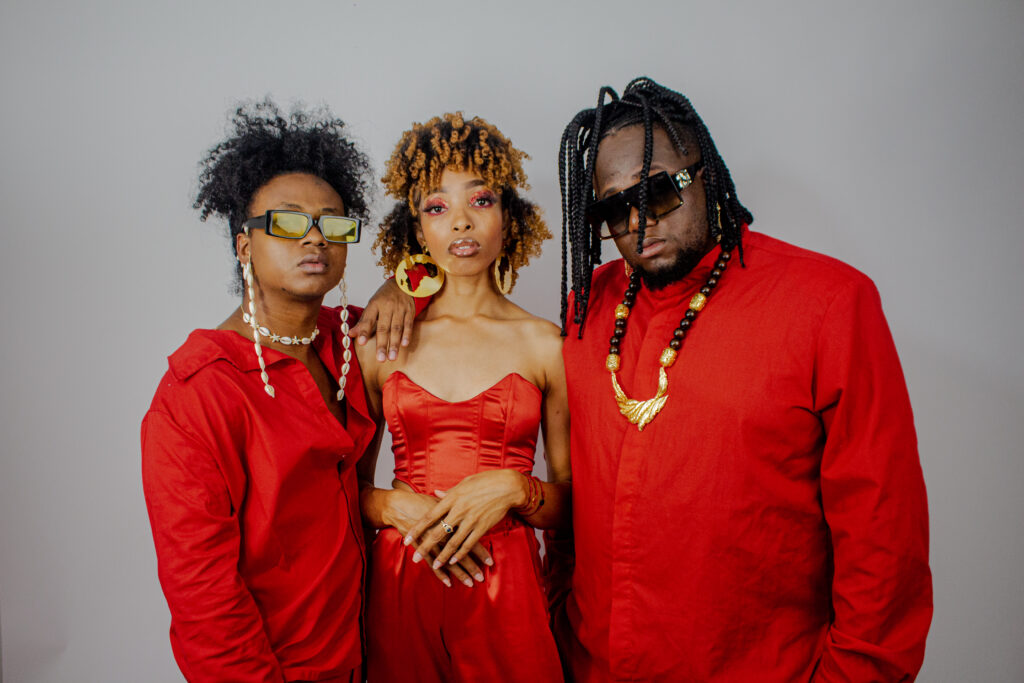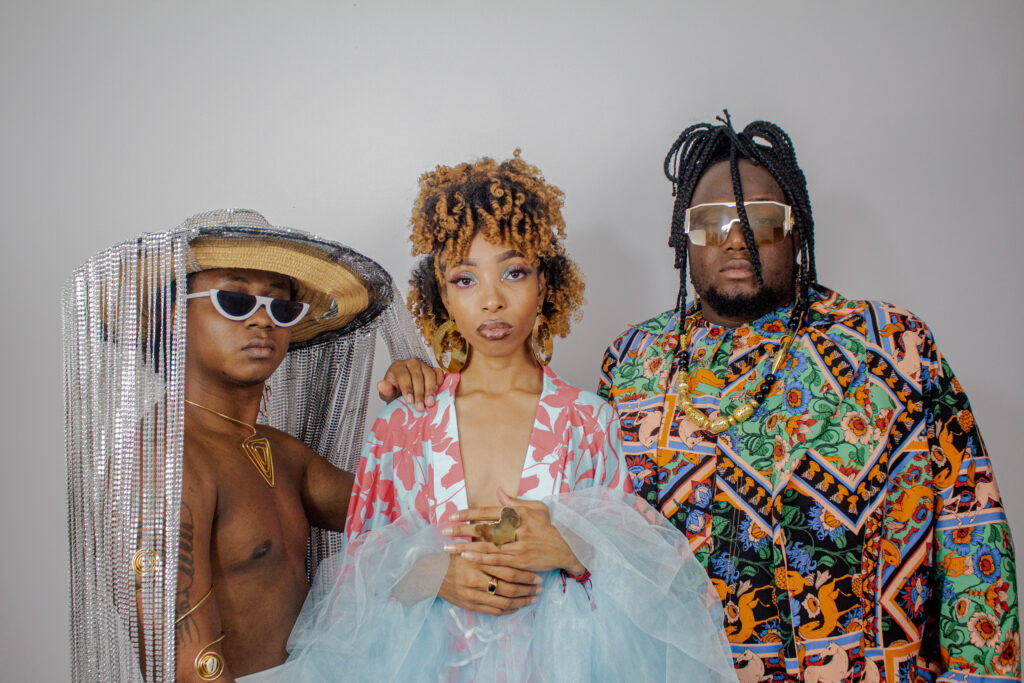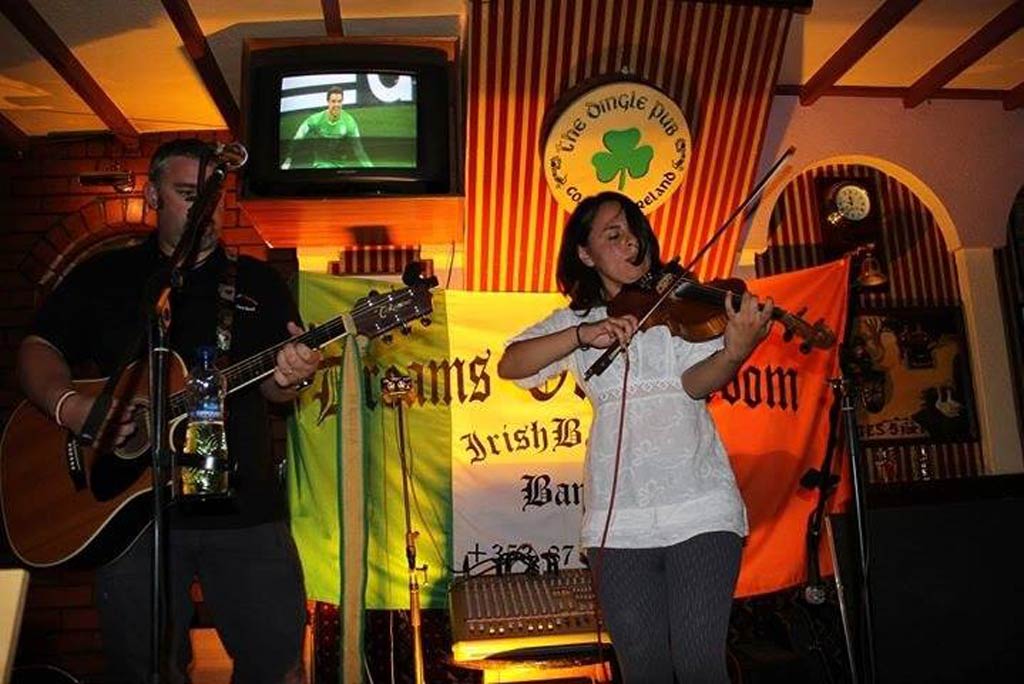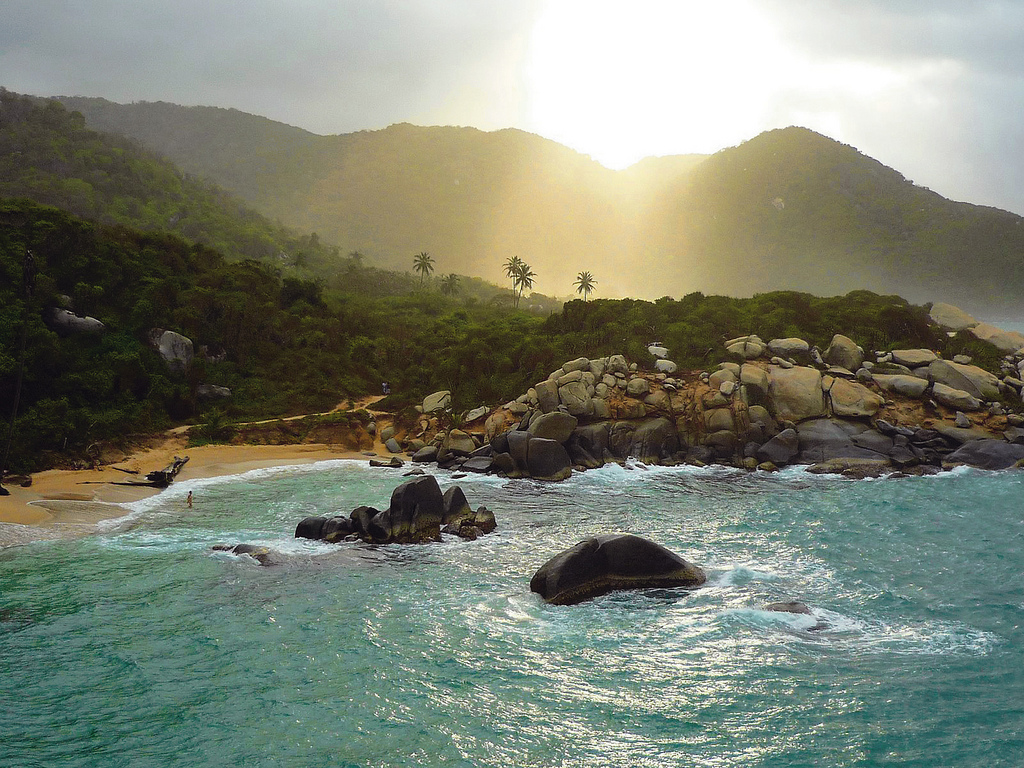The west coast of Colombia is where some of the country’s most exciting, powerful contemporary music is born. Festival Estéreo Picnic 2024 encompasses the full range of Colombian sounds, so they’ve invited Pacific heavyweights Afro Legends to play.
“The diversity that the Colombian Pacific has is represented in its music.”
Flowsiao, Afro Legends
The band speaks to us from Cali ahead of their trip to Bogotá, three on a single WhatsApp call. Musical maestro Flowsiao takes the lead to explain that, “Afro Legends are from the city of Cali but our essence comes from Chocó, the Colombian northern Pacific.” He’s accompanied by singers Sterling Delpa and Liam V.

Many people consider Colombia’s third city to be a part of the Pacific, thanks to events like Petronio Álvarez festival, but Sterling disagrees. He says, “No, Cali is not Pacific. We are a Colombian Pacific band from the diaspora.”
The region is fertile ground for musical innovation, deep roots providing a strong base for new sounds to flourish and thrive. Sterling confirms this, saying “We, as Colombian Pacific people, were born in music. Speaking from my experience, the importance of music is when people have something to say, whatever it might be.”
There are so many bands from the region, including such names as DawerXDamper, the Afrofuturist brothers we spoke to last year, La Pacifican Power, hip hop starlet Verito Asprilla, rapper Mabiland and of course, the megastars that are ChocQuibTown. These sit comfortably alongside traditionalists like Canalón de Timbiquí.
While they are proud of other regional stars, Flow rejects the idea of a movement as such: “We’re all groups with different styles and genres. You’ll encounter different essences, lyrics, and rhythms. There’s no specific name for it, but there’s the same Pacific essence. The diversity that the Colombian Pacific has is represented in its music.”
Tradition and roots are evidently important to them but never exert a stifling influence. This is forward-looking music that builds on what has gone before rather than simply recreating it. Marimba rhythms from currulao snake in and out of electronic beats and rap or hip hop influences are evident. As Liam V says, “Traditional music reaches people more easily.”
They define themself as contemporary alternative music, sidestepping genre definition. Sterling attributes this to a need to speak: “The musical boom now is because people have something to say. If you look at it, there’s so much alternative music and it’s because people have to tell their story.”
Flowsiao explains their story as one of “ancestral influence and greatness.” He says, “The music, the lyrics, the live performances always give us the symbolism of being kings and queens, gods and goddesses. That’s the legacy that comes from our roots, the work of teaching people with the lyrics of resistance that is aimed principally at Black people, but also for others because music is universal.”
Sterling builds on this: “With Afro Legends, we have sabrosura and resistance, those are the two lungs that power us. The sabrosura is that we dance, move, jump and enjoy the music. On this side, we show what we feel. But on the side of resistance is what we must say, for example with [the song] Negrito, where we want to educate people to change, peacefully and without violence.”
Afro Legends talk about racism in Colombia
That song Sterling references speaks to a contentious term in Colombia. Its use is often defended by non-Black people, but is generally viewed as extremely problematic in the Black community. Sterling explains: “People don’t ask your name, they say, ‘Ey negro, mi negrito’. What is this, ‘Ey negro’?”
“It’s about the objectification of Black people,” he continues. “For example, if you want to talk about a white or mestizo person you would say ‘el señor in the blue shirt’ but if it’s a Black person it’s just ‘el negrito in the blue shirt’. This is how the diminutive form is normalised.”
Flow agrees, saying, “The song is an invitation to call Black people by their names and not as things. It’s a criticism of the way society views Black people in a diminutive way. Instead of calling us by our names or asking for our names, they use these offensive terms to minimise us.”
I ask about racism in Colombian society and the answer is lightning fast from Flow. “Yes, It’s evident that Colombia is a racist country despite being multicultural and having a large Black population.” Sterling agrees, adding that “It’s a country where racism is normalised.” They pull no punches here, as uncomfortable as it may be for some to hear.
“First you get people to enjoy the rhythm, and then they listen to the lyrics. “
Sterling Delpa, Afro Legends
“More than the propaganda in social networks and on television,” Flowsiao tells me, “The reality is another thing. Black and Indigenous communities in Colombia have to work twice as hard as white and mestizo people, or those with privileges. Structural racism still exists. People say it’s [the term negrito] with affection, but it’s with dominance and privilege. This creates a vicious circle.
He continues, “Racism has been used as a tool to stop Black people taking certain positions or jobs. Through the years it has taken new forms of power, from enslaving people through to occupying spaces and using diminutive terms. Slowly, there are more collectives that are joining the fight for Black people’s rights and to stop others continuing to steal our spaces, both at a national and international level.”
Sterling continues the argument. “White and mestizo people grow up in a bubble where they’re always called señor, niño, whatever, something with humanity. But with a Black person, they always objectify us.” This is an angle that is rarely heard in mainstream Colombian culture, often made invisible and sidelined. Yet it’s clearly true and important as it speaks to the real, lived experience of so many Colombians.
Liam V says that Negrito is, “A necessary song for all Black people and we’ve had a positive reaction to it. We’re telling a truth that we’ve all experienced. For us, it’s necessary to say things as they are.” Sterling has also had positive feedback, “They say ‘Hey guys, thanks for talking about something real’.”
Looking to the future – Festival Esteréo Picnic 2024 and more
“Things are getting better,” says Flowsiao. “It’s a constant struggle, in 15, 20, 30 years, if we as Black people do not educate and empower ourselves, future generations will lose the fight and it will never end. So, thanks to those collectives and organisations that are doing the work of educating the boys and girls who are growing up now. The positive is that there are many who are empowering themselves now.”
Liam V jumps in here: “I will add that we have the task through our music day-to-day of fighting racism in all its forms. We’re here to tell that story.” It’s clear that the band as a whole see their music as important in the process. Sterling says, “First you get people to enjoy the rhythm, and then they listen to the lyrics. Hopefully, then they will reflect and think ‘Hey, I was doing something wrong’.”

Conversation turns to Festival Estéreo Picnic 2024 itself and they interrupt each other in their enthusiasm, Liam V winning out: “Exciting!” she says. “This festival is such a big stage for us. We’re really excited and very anxious. We want the public to be with us, to enjoy it, that’s the main aim, but also to teach. That’s the musical responsibility of Afro Legends.”
Sterling agrees. “Up on the stage, Afro Legends always bring the Colombian Pacific to the stage we’re on, so we’re bringing our ancestralidad to Festival Estéreo Picnic 2024, all this power. It’ll be a crazy experience.”
Liam V cuts back in to make sure no secrets are spilled, saying: “We have lights, outfits, styles, it’s going to be an impressive thing and you’ll see that it’s very impactful. We can’t give any spoilers about our show but there’s going to be important things there.”
They’re proud to be sharing the stage with some top talents, Flowsiao namechecks, “La Etnnia, Blessed Madonna, Black Coffee. So many people.” Sterling adds in some regional solidarity “Verito [Asprilla] is one of us, she’s from the Pacific to fly the flag high for the region, like us.”
To finish up, I ask them what they recommend for visitors to their beloved Cali. Sterling is quick to cite another Afro-Colombian musical legend “Nidia Góngora’s restaurant, Viche Positiva.” Flowsiao agrees “Any of the Pacific gastronomy, like ceviche – delicious!”
He continues, “In the east of Cali you can find semilleros which are groups of women sharing knowledge, traditional music and medicine and so on. It’s sharing traditional and ancestral things from generation to generation, especially for Black people from the Colombian Pacific.”
When you have time, we highly recommend going to Cali, one of Colombia’s most interesting cities and the Pacific region in general, from Tumaco to Nuquí. However, in the short term, get yourself down to Festival Estéreo Picnic 2024 for a blast of Pacific sabrosura from Afro Legends.
Afro Legends open the main stage of Festival Estéreo Picnic 2024 at 3pm on Saturday March 23 in Parque Simón Bolívar. Tickets still available here at time of publication.





